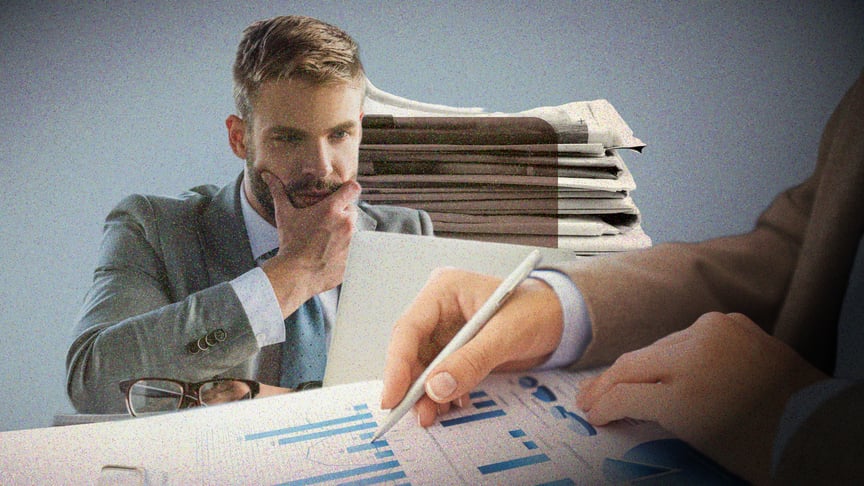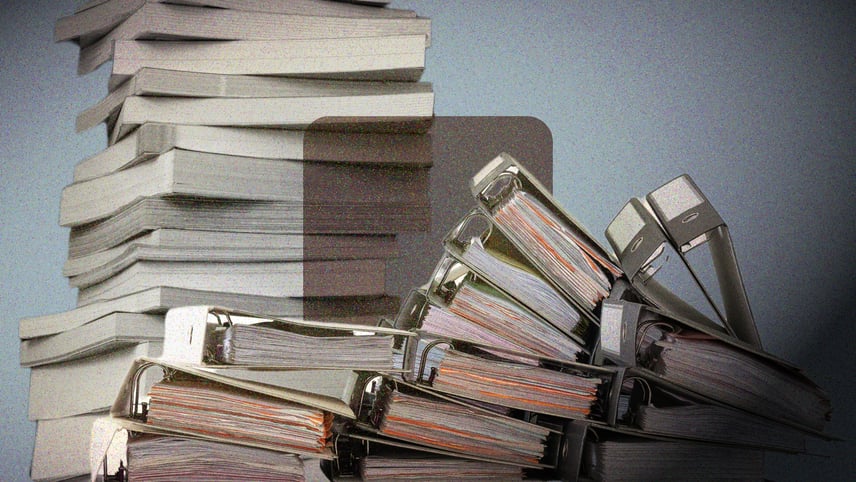The tax authorities are conducting checks, while security forces investigate potential Russian ties. Will businesses survive under government pressure?

In the third quarter of 2024, the Council of the Business Ombudsman received 278 complaints from companies. The majority of complaints originated from Kyiv (32%), followed by the Lviv region (12%), Kyiv region (10%), and Dnipropetrovsk region (8%). By industry, most complaints came from wholesale trade companies (25%), real estate and construction companies (11%), agricultural companies (10%), and manufacturing (10%).
Of the 278 complaints, 59% concerned tax issues, 15% involved actions by law enforcement agencies, and 6% were related to customs operations. Although the overall number of complaints has gradually decreased this year, relations with the State Tax Service are deteriorating.
Specifically, of all complaints sent concerning the STS, 58% pertained to the administration system of value-added tax and the registration of tax invoices—documents through which companies report their tax obligations. The STS actively blocks these invoices, leading to tax debts for Ukrainian businesses, which consequently results in painful fines.
In Ukraine, over three thousand tax debts from businesses have been outstanding since 2021, as calculated by “Opendatabot” based on STS data.
Throughout the year, the situation regarding the registration of tax invoices saw some improvement, but it has reverted to the state it was in at the beginning of the year—then, 58% of tax complaints from businesses were also related to VAT and invoices. Approximately 15% of active taxpayers faced a halt in invoice registration in the third quarter of 2024.
At the same time, entrepreneurs' despair is growing regarding the possibility of resolving these issues through administrative channels—meaning by communicating with tax officials and bureaucrats. Increasingly, they are forced to resort to legal action, which incurs additional costs.
“Our tax system has still not been fully reformed—it was established under Mykola Azarov, where it had absolute powers and effectively established the principle of presumption of guilt, where it is not the tax authority that must prove the company's guilt, but the entrepreneur that must prove their innocence,” notes Ilya Neskhodovsky, head of the analytical department at the National Interests Protection Network “ANTS.”
“As for law enforcement agencies, they need to rid themselves of corrupt personnel so that they can be business partners, rather than viewing businesses as cash cows on a short leash,” says Volodymyr Dubrovsky, senior economist at the Case Ukraine expert center.
The culture that tax officers and law enforcement learn in their universities is a remnant of Soviet culture. In their worldview, entrepreneurs are seen as crooks, and if given the chance, they will create chaos.Volodymyr Dubrovsky, senior economist at the Case Ukraine expert center
“Some have a chance for recovery, while others have faded into oblivion”
The problems in the relationship between Ukrainian businesses and government authorities are best illustrated by specific cases. Some of these are described by the Council of the Business Ombudsman—without naming companies but revealing the essence of the issue.
For instance, the only producer of rock salt in Ukraine faced challenges in communicating with the Main Office of the STS in the Transcarpathian region. This occurred in March 2024. Tax officers pointed out discrepancies in rent payments for the use of subsoil and accumulated inventory balances, for which VAT credits had been formed. In other words, the tax authority began to suspect that a certain amount of salt had already been sold by the company without paying VAT.
As a result, the enterprise was placed on a risk list, which worsened its market position—affecting relations with other government authorities, banks, and partners. The Council of the Business Ombudsman explained to the tax officers that a check of material balances needed to be conducted rather than immediately categorizing the enterprise as risky. Ultimately, the company was removed from this list.
Another example. In the summer of 2024, the tax service in the Volyn region imposed millions of hryvnias in additional tax obligations on a local construction company, believing it was selling more real estate than taxes had been paid on.
It turned out that the issue stemmed from a technical error. Tax officers claimed that the construction company sold property rights to an apartment in May 2022 without paying the tax due. The company insisted that the sales occurred not in May but in June 2022. The error was made by a state registrar—a notary who formalized the agreement. However, the notary's explanations did not satisfy the tax officers until the Council of the Business Ombudsman intervened. Only then were the tax assessments canceled.
Lawyer Pavel Yanchak reached out to hromadske to discuss the problems faced by his client—the company “Mastak.” In 2018, the company won a tender to supply measuring instruments for one of the branches of the state company “Ukrzaliznytsia.” The delivery was made, Yanchak claims.
Then the company faced difficult times, as in September 2022, its director Vasyl Nichvid was killed. He was a serviceman, deputy commander of the 64th Battalion of the 103rd Separate Brigade of Territorial Defense, and died in battle for the village of Yampol in the Donetsk region.
In October 2024, the Supreme Court ruled that the company “Mastak” must return 2.14 million hryvnias to the branch of “Ukrzaliznytsia” for the supplies of instruments, which will be transferred to the state, as the tender in 2018 was held in violation of antimonopoly legislation. Meanwhile, the company’s instruments were not returned. The court simply sided with the prosecutor, who did not provide credible evidence of anti-competitive actions by “Mastak,” claims lawyer Pavel Yanchak. We reached out to “Ukrzaliznytsia” for a comment, but the company did not respond regarding this situation.
This is now a whole trend where contracts from previous years are being reviewed in court, and supplier companies are being asked to return funds for the services or goods provided.Pavel Yanchak, lawyer
Lawyer Yevhen Hrusovets from Ario Law Firm highlights another issue faced by Ukrainian businesses: the search by law enforcement for a Russian trace in activities to use it as a means of pressure on such businesses.
“I have to state that the number of such cases in our law firm has been growing exponentially lately,” notes Hrusovets.
“I would compare the situation to how Russian occupying forces are destroying our cities and villages. Some of them have a chance for recovery, while others have faded into oblivion. This is somewhat similar to how individual representatives of the law enforcement system are currently treating Ukrainian enterprises and the Ukrainian economy,” adds the lawyer.
Entrepreneur Oleksandr Sokolovskyi recently provided an example of how the French-invested company “Neo-Eco” wanted to engage in the restoration of residential properties in the war-damaged Hostomel of Kyiv region but encountered resistance from local authorities, who allegedly demanded improper benefits. The Hostomel community did not comment on this case in response to hromadske's inquiry.
Another similar case involves the American company Sinclair & Wilde accusing the Ministry of Defense, with which it had a contract for supplying military uniforms, of extorting bribes. The Ministry of Defense also did not respond to hromadske's request on this matter.

“A heap of bureaucratic red tape for no reason”
Experts surveyed note that the main obstacle in the relationship between Ukrainian businesses and government authorities is excessive regulation and an overwhelming number of frequently changing rules. Therefore, businesses may simply not keep up with all these regulations and requirements.
“The most significant problem is the government’s attempt to reach into every pocket and regulate in the spirit of ‘we will do what we want, and that too absolutely unexpectedly and unpredictably,’” says economic expert Yuriy Havrylechenko, a candidate of sciences in public administration. — Therefore, we have excessive regulation and unpredictability of these regulations.”
In September 2024, the consulting company KPMG released a report considering new tax regulations for Ukrainian businesses. It turned out that since February 24, 2022, at least 14 changes have been made to the current tax system due to new regulatory acts.
And starting December 1, another significant change came into effect—tax increases that have been dubbed historic, as they are essentially the largest in the entire history of independent Ukraine. In 2025, tax reform is expected to yield an additional 141 billion hryvnias in fiscal revenue.
Simultaneously, discussions are ongoing about granting the STS and law enforcement access to information about citizens' bank accounts, which poses a risk to banking secrecy—potential